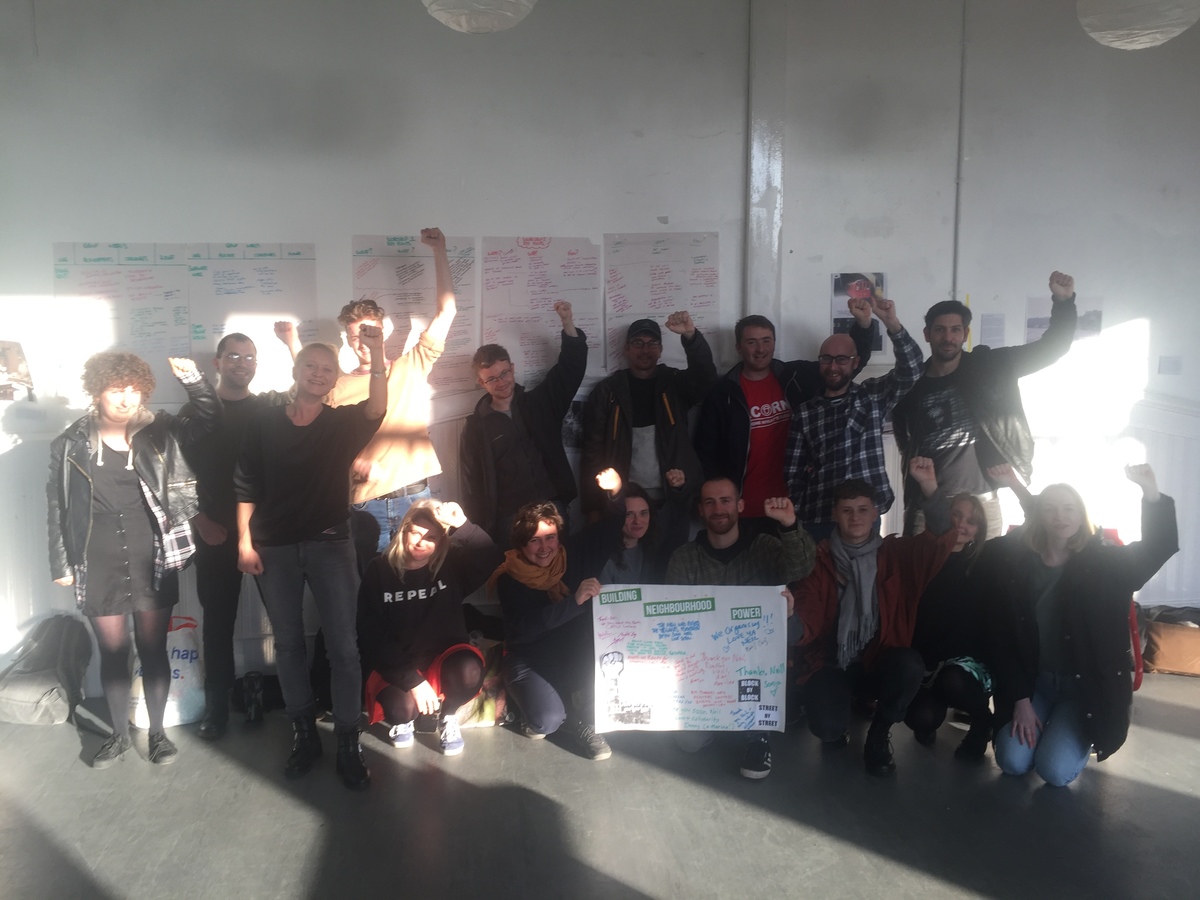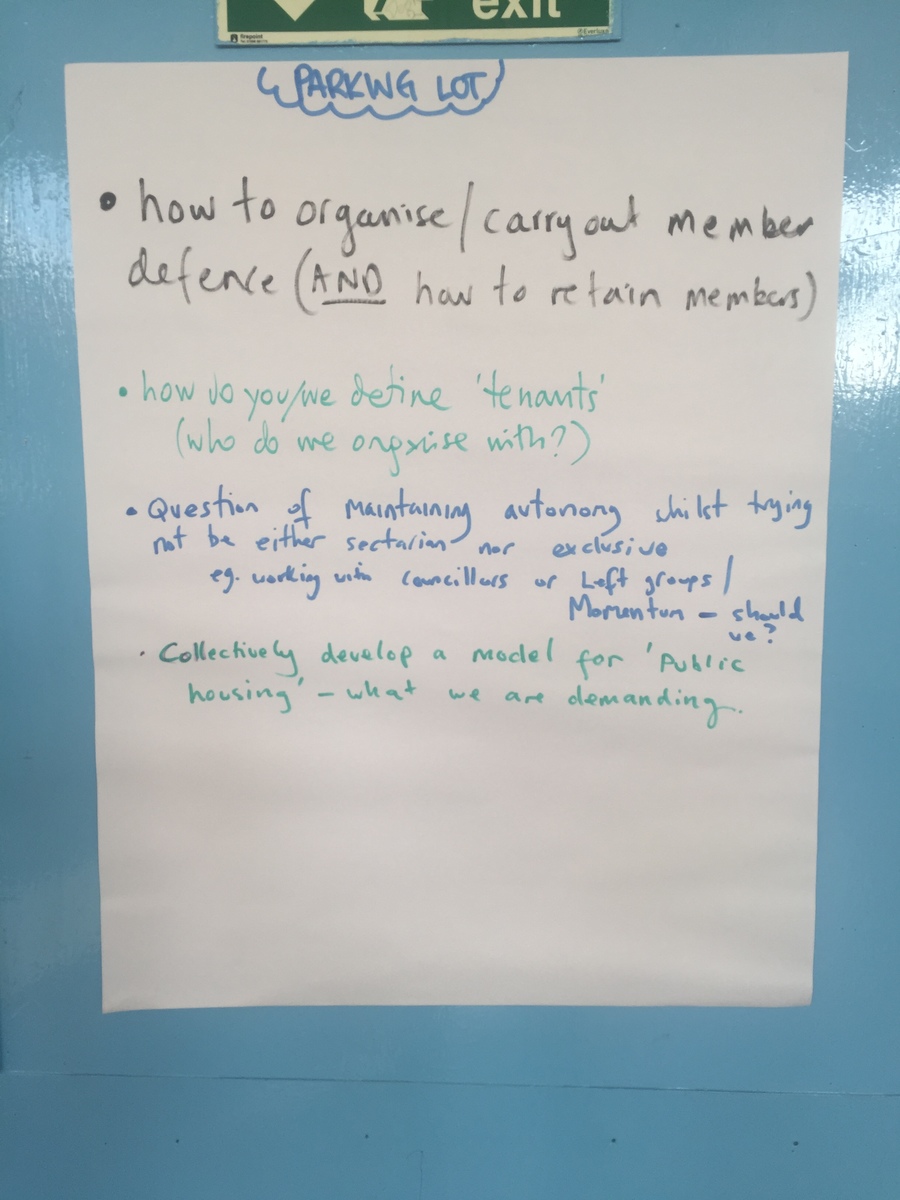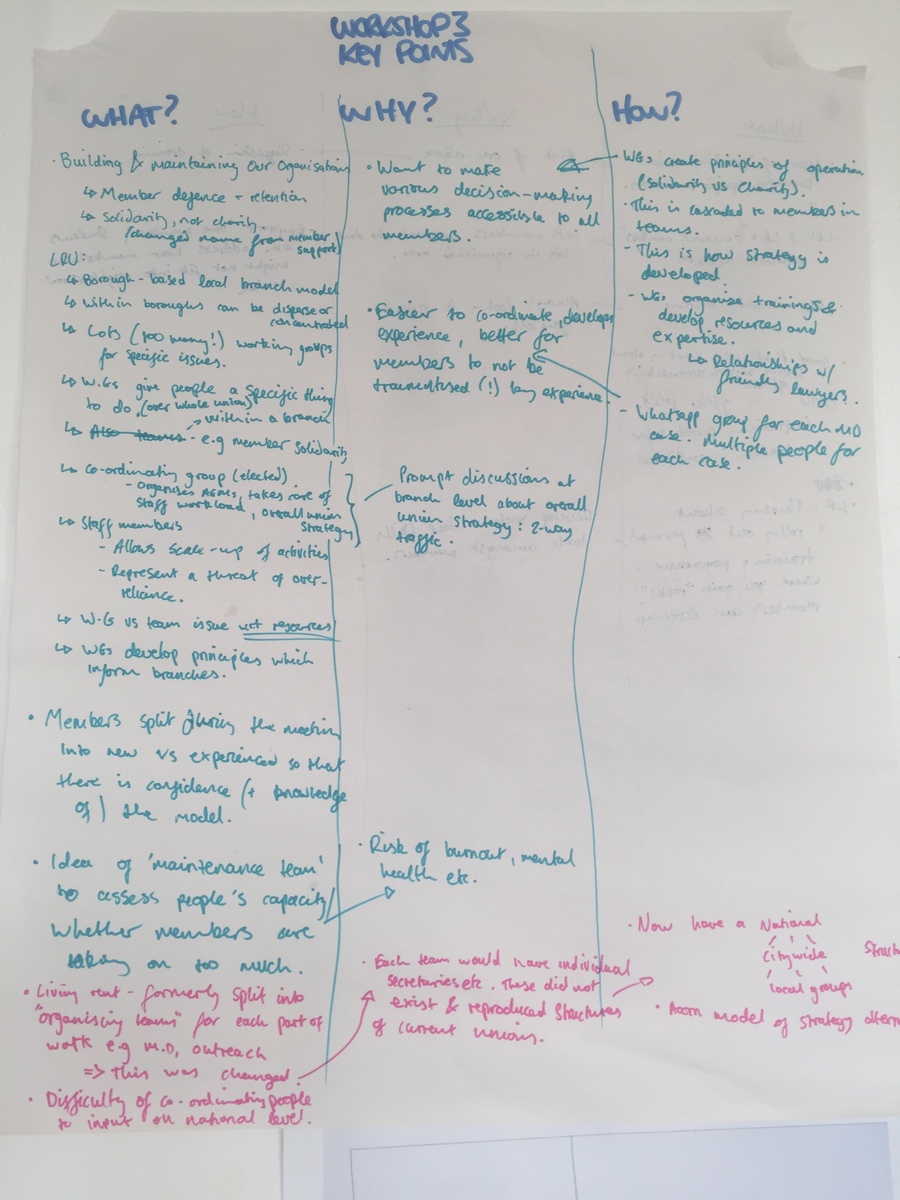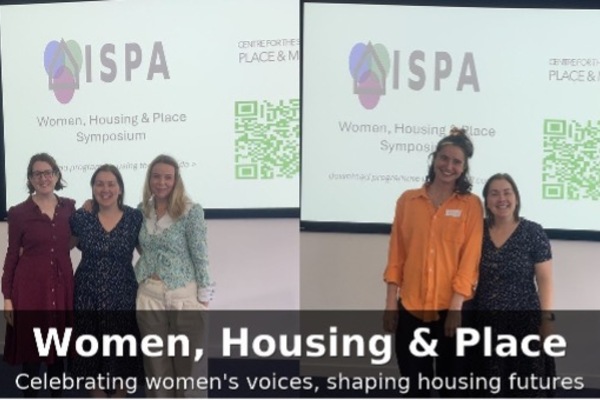Neil Gray gained a PhD in Geography in 2015 and is currently a research fellow at the University of Glasgow. He edited the book, Rent and its Discontents: A Century of Housing Struggle (2018), and has written widely around issues of urbanisation and housing for numerous journals and magazines. He is a member of Living Rent and a long-term housing activist.
Sonja Coquelin is the Chair of Living Rent Tenants' Union and has been active at all levels of the organisation since 2017. As a social tenant, she has played a prominent role in numerous housing campaigns and has been instrumental in developing learning and training programmes aimed at building members' organisational and leadership skills.
Building on the lead applicant’s edited book collection, Rent and its Discontents: A Century of Housing Struggle (Gray, 2018), on Saturday 12 October 2019, early-career academic housing researchers and representatives from emerging housing tenants’ groups and unions in Scotland, England and Ireland were invited to Glasgow to spend a day together in a one-day workshop supported by the Housing Studies Association (HSA). The groups involved included: Acorn, Living Rent, London Renters Union (LRU), Community and Tenants’ Action (CATU) Ireland, and Southwark Notes, a group who have been contesting area-based regeneration in London for a decade.

The workshop was held at the Kinning Park Complex, a community-run multi-use space in the Southside of Glasgow that was only retained for use when the community occupied the building in 1996 to protest its planned closure. The workshop was designed to create a forum for knowledge exchange and skill-sharing between early-career academics, emergent tenant organisations and a wider community of tenant and community organisers; to develop greater reciprocity and exchange between academic researchers and community/housing groups; and to establish new collaborative academic and non-academic research agendas/practices. The lead applicant, Neil Gray, is extremely grateful to members of Living Rent who took over the organisation of the event at short notice when he fell seriously ill.
Apart from Southwark Notes, none of the tenants’ groups/unions were founded before 2014, yet each has rapidly built their memberships, mainly in the PRS, in the context of massive rent hikes in the sector. The development of new renters’ unions (LRU, Living Rent) in the context of a rather moribund situation for independent tenants’ movement has been a significant achievement. However, given the foundational nature of the groups, and the pressing circumstances each operate under (often with very little funding beyond members’ dues), there had been little time for collaboration and knowledge sharing across national boundaries between the groups. As such, the day began with short introductory presentations (10-15 minutes) from all groups involved, outlining their origins, current practice, forms of organisation, future aspirations and blockages and constraints for development. The groups had consulted prior to the event and agreed three common themes they would like to address during the day:
- Organising in the neighbourhood/building local branches.
- Defending, demanding and improving public housing.
- Building and maintaining our organisations.

In the first workshop entitled ‘Organising in the neighbourhood’, members from Acorn and Living Rent introduced their respective organising models. They highlighted the necessity of creating new channels of locally rooted power by building local branches/groups. Both organisations have developed a ‘Membership Pack’ which acts as a tool to help volunteers set up local branches without the support of a paid organiser. This pack describes the steps needed to start up a local group: mapping your neighbourhood, identifying common issues, finding Member Defence cases, writing a mission statement and organising a launch event. It also suggests rethinking public organising and communication: ‘meetings’ are fundamental but not as appealing to many as ‘events, picnics, parties or film screenings’, all of which help develop a culture and camaraderie around the organisation. Building links with other existing groups and organisations in the area is also deemed essential.
The second workshop, ‘Defending, demanding and improving public housing’, was led by members of Southwark Notes who gave an overview of the demolition of council estates/housing throughout the UK and the consequences arising from this (including the re-rise of an unregulated private rented sector and massive rent hikes). This was followed by a discussion around how to mobilise and organise tenants across tenures and further discussion of methods to overcome barriers that can prevent solidarity between tenants. Since the groups involved, apart from Southwark Notes, in practice, mainly work with PRS tenants this was an important discussion to have in terms of developing complementary group policy and practice around public/social housing. It was recognised by all that the fate of public/social housing and the PRS are deeply intertwined.
In the final workshop of the day, ‘Building and maintaining our organisations’, members from LRU and CATU Ireland explained how each organisation was structured and what successes they had achieved over the previous months, mostly through member defence cases. This led to everyone sharing some of their achievements but also the challenges faced in terms of involving, retaining and empowering members through the member defence model. For instance, the tension between service provision and the desire across all groups that supported members ‘put something back’ by supporting others in the tenants’ unions.

It was then time to gather for a closing session during which it was clear that everyone wanted the discussion to continue and wished this event had been over an entire weekend. As a group just newly formed, CATU Ireland expressed how incredibly useful the event was for them in terms of developing their policy and practice based on the experience gathered from the other groups. Notably, LRU, Living Rent and Acorn have since collaborated on joint work on the COVID-19 situation, for instance sending an open letter to the government, demanding: (1) the suspension of rent for the duration of the crisis; (2) the cancellation of all rent arrears accumulated during the crisis; (3) the protection of renters from eviction while they are trying to cope with Coronavirus and its aftermath. Such collaboration on the national UK scale, challenging preferential treatment given to landlords’ over tenants’, may not have occurred without this event. An example of the arguments around Coronavirus and housing can be found in the Scottish Left Review by a member of Living Rent.
As numerous commentators on housing movements have observed, tenant-led organisations have typically been under-supported by both mainstream and Left institutions, the latter tending to privilege workplace organising over action on ‘the secondary front’ of housing and the built environment (Grayson, 1996; Bradley, 2014; Gray, 2018). With the privatisation and demolition of substantial portions of public/social housing in Britain and Ireland over the last few decades, and with many tenants’ groups incorporated into Housing Association structures, many older independent tenants’ organisations have collapsed. In this context, it is heartening to see the emergence of a new wave of tenants’ unions with an (often younger) demographic addressing changing housing circumstances head on. HSA support of this event provided a much-needed space of reflection and knowledge exchange between these emerging groups, helping strengthen independent tenant organisation when the necessity of tenant-led organisation, in a period of deepening housing crisis for tenants, could not be more palpable.
References
Bradley, Quintin. 2014. The Tenants’ Movement. London: Routledge.
Gray, Neil. Rent and its Discontents: A Century of Housing Struggle. London: Rowman & Littlefield International.
Grayson, John. 1996. Opening the Window: Revealing the Hidden History of Tenants Organisations, edited by Maggie Walker. Manchester: TPAS and Northern College.







